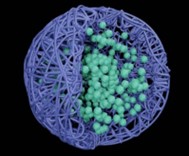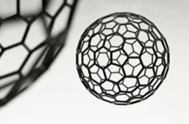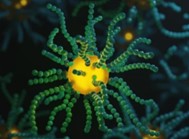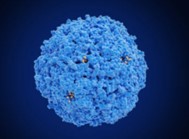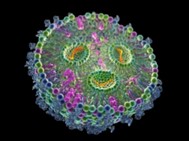Nanocarrier Development for Nucleic Acid Delivery
InquiryAt CD Formulation, we are committed to propelling the field of gene therapy and drug delivery forward with our innovative solutions. Our specialization in nanotechnology and biocompatible materials has enabled us to create a diverse portfolio of nanocarriers. Nucleic acids are efficiently delivered to target cells through these nanocarriers, which overcome biological barriers, protect nucleic acids from degradation, and facilitate their preservation.
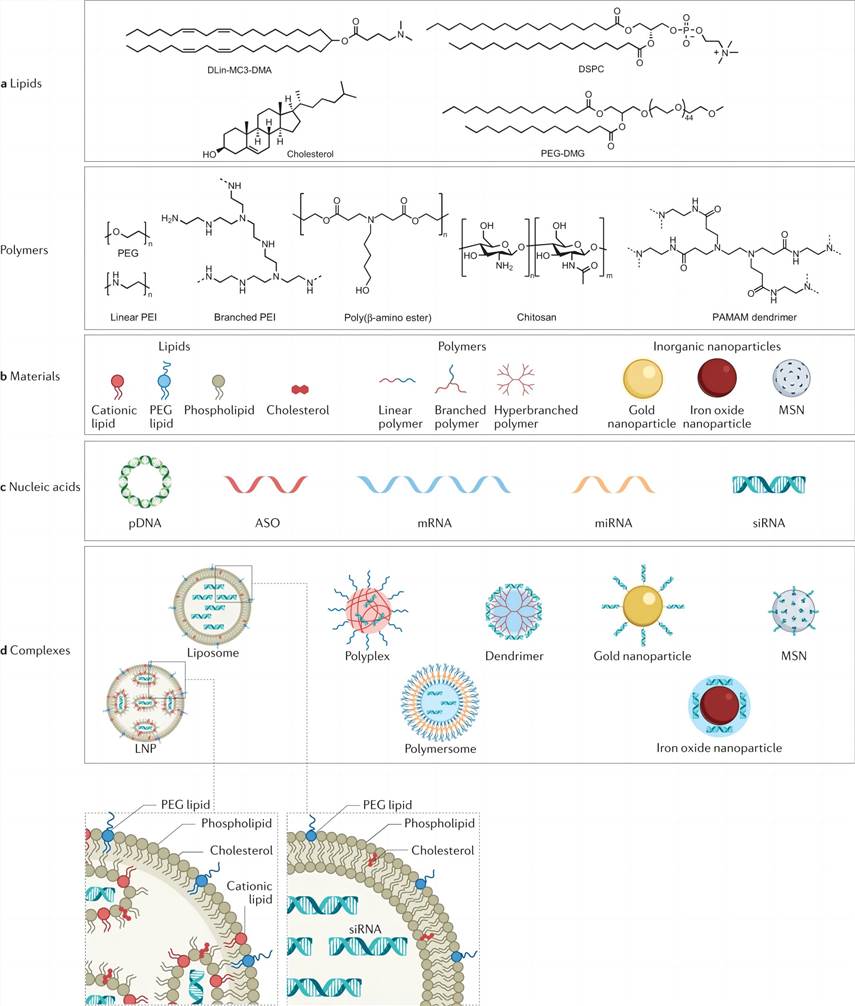 Nanoparticles and materials for nucleic acid delivery (Mendes B.B.; et al., 2022)
Nanoparticles and materials for nucleic acid delivery (Mendes B.B.; et al., 2022)
What Types of Nanocarriers Can We Develop?
Our company excels in the development of polymer nanocarriers, harnessing the unique advantages of polymers for drug delivery and gene therapy. Polymers offer versatility, biocompatibility, and tunable properties, allowing precise control over size, stability, and drug release kinetics, ultimately enhancing therapeutic efficacy and enabling targeted delivery strategies.
CD Formulation develops inorganic nanocarriers utilizing silica and other materials for controlled and targeted nucleic acid delivery. Our scientists functionalize stable, rigid silica particles for high loading and sustained release. It is important to maintain the integrity of the formulations while optimizing biocompatibility.
CD Formulation designs metal nanoparticles for nucleic acid therapeutics. Our scientists exploited plasmonic properties to synthesize gold and silver nanoparticles for stimulus-responsive release. We can also perform precise bioconjugation of the particle surface, enabling targeting of cellular receptors.
Our expertise lies in the development of protein-based nanocarriers, offering innovative solutions for drug delivery and therapeutics. Protein-based nanocarriers provide exceptional biocompatibility, targeted delivery, and controlled release, harnessing the versatility and functionality of proteins to enhance therapeutic efficacy and enable precise treatment strategies.
CD Formulation develops advanced lipid nanocarriers for nucleic acid delivery. Our scientists design novel lipid compositions for high nucleic acid encapsulation and formulate liposomes and other lipid particles with tunable properties. The particle surface can be pegylated or otherwise modified to achieve special effects.
How Do We Develop Nanocarriers?
|
Material Selection |
- We carefully select materials such as polymers, inorganic compounds, metals, proteins, or lipids based on their biocompatibility, stability, and drug-loading capabilities.
|
| Nanocarrier Synthesis |
- We utilize various techniques like emulsion/solvent evaporation, nanoprecipitation, or self-assembly to fabricate nanocarriers with precise dimensions and drug encapsulation capabilities.
|
| Drug Loading |
- We optimize the formulation parameters, such as drug-to-carrier ratio and solvent selection, to achieve high encapsulation efficiency.
|
| Surface Modification |
- Surface Functionalization:We employ techniques like covalent conjugation, electrostatic adsorption, or physical adsorption to modify the surface properties of nanocarriers for improved stability, biocompatibility, and targeting.
- Ligand Conjugation: Specific ligands or targeting moieties are attached to the nanocarrier surface to enhance selective binding to target cells or tissues.
|
| Nanocarrier Characterization |
- Particle Size and Morphology: We employ techniques like DLS, SEM, or TEM to analyze the size distribution and morphology of the nanocarriers.
- Surface Charge: Zeta potential measurements using a Zetasizer.
- Drug Encapsulation Efficiency: Quantification of drug encapsulation efficiency using techniques like UV-Vis spectroscopy, HPLC, or fluorescence spectroscopy.
|
Applications of Our Nanocarrier Development Services
|
Gene editing |
|
| Upregulating gene expression |
- DNA plasmids (pDNA)
- Minicircle DNA (mcDNA)
- Self-amplifying RNA (saRNA)
- Circular RNA
- mRNA
|
| Downregulating gene expression |
- Small interfering RNA (siRNA)
- Short hairpin RNA (shRNA)
- MicroRNA (miRNA)
- Antisense oligonucleotides (ASO)
|
| Nucleic acid vaccines |
- DNA vaccines
- RNA vaccines
|
Highlights of Our Nanocarrier Development Services
- Choose the most suitable drug delivery system based on your client's medication type.
- Use cationic polymers to complex and condense anionic nucleic acid molecules to induce endosomal escape.
- Develop lipid-based nanodelivery systems which are the most widely used non-viral nucleic acid vectors.
- Develop stimulus-responsive materials to respond to endogenous or exogenous stimuli, enabling nucleic acid delivery in a more specific and controlled manner.
- Formulate various types of nucleic acid-loaded nanocarriers, such as nanoparticles, polymer micelles, and polymer vesicles.
CD Formulation can tailor nanocarriers to meet specific therapeutic objectives, providing efficient and targeted delivery systems for a wide range of therapeutic agents. For tailored and efficient drug delivery solutions, contact us today to discuss your specific needs!
References
- Mendes B.B.; et al. Nanodelivery of nucleic acids. Nat Rev Methods Primers. 2022, 2:24.
- Qin, Y.; et al. Delivery of nucleic acids using nanomaterials. Mol Biomed. 2023, 4:48.
Related Services


 Nanoparticles and materials for nucleic acid delivery (Mendes B.B.; et al., 2022)
Nanoparticles and materials for nucleic acid delivery (Mendes B.B.; et al., 2022)